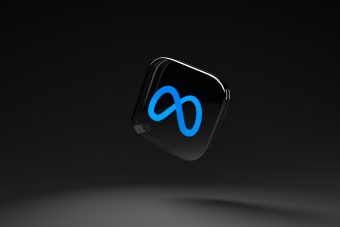How the creation of a custom marketing GPT led to our newest team member, Mark the Marketer. An AI mascot for Roar.
Introduction
GPTs are smart AI models, created by OpenAI, that can generate text from just a simple prompt—whether it’s answering questions, writing articles, or even holding conversations. In marketing, they’re quickly becoming a game-changer, helping teams crank out content faster, spark creative ideas, and boost efficiency like never before. All of this prompted us to create our own marketing GPT, Mark the Marketer, the newest member of our marketing department.
What are GPTs?
GPTs, or Generative Pre-trained Transformers, are advanced AI language models designed to generate human-like text based on input prompts. These models leverage vast amounts of data to understand language patterns, making it possible for them to complete sentences, answer questions, generate articles, and even hold interactive conversations. They are trained on diverse datasets and, with each iteration, become more sophisticated in mimicking human writing and providing contextual answers.
Why GPTs useful?
GPTs are transformative for several reasons:
- Efficiency in content creation: GPTs can rapidly produce high-quality content, saving time and resources. From drafting blog posts to generating SEO-focused articles, they can handle a variety of writing tasks quickly and effectively.
- Customisability for specific needs: Through prompt engineering and custom instructions, GPTs can be tailored for specialised tasks. For instance, they can be fine-tuned to focus on SEO, create content for specific industries, or generate responses that match a brand’s tone.
- Consistent output: Unlike human writers who may have varying styles or require time to adjust, GPTs provide consistent results, following set instructions to maintain quality across all outputs.
- Enhanced creativity and idea generation: GPTs can brainstorm ideas or provide unique perspectives, which can be especially useful in content marketing or campaign planning.
How we use GPTs at roar?
Our team have been using GPTs to assist our marketing for years. The ability to adapt to the specific need ensure the output is more tailored and saves time editing and correcting.
We use GPTs as powerful tools to support many of our digital marketing efforts, particularly within our SEO team. Through customisation, we’ve tailored GPTs to perform specific functions:
- Generating SEO-optimised content: By using custom prompts and frameworks, we ensure that the content created by our GPTs is optimised for search engines, targeting relevant keywords and aligning with Google’s EEAT principles.
- Automating content integration for client CMS: With our custom instructions, GPTs can generate content in specific formats (like YAML code), making it easy to integrate directly into client CMS platforms, streamlining the content publishing process.
- Improving content quality through structured reasoning: We incorporate the Chain of Reasoning (CoR) framework to enhance GPT outputs. This approach helps our GPTs gather context autonomously, reducing the need for extensive prompting while still delivering high-quality, targeted responses.
Mark the Marketer
Why we created Mark
As a small agency with a lean team, we were facing a unique challenge: balancing efficiency with the need for high-quality, authentic content. AI tools like GPTs had the potential to save time, but the outputs often required substantial editing to sound natural, align with our clients’ SEO goals, and adhere to Google’s content standards. We needed a solution that could deliver well-targeted, SEO-friendly content that didn’t sound like AI. This need led us to adopt and develop “Mark the Marketer,” our custom GPT designed specifically for digital marketing tasks like SEO, PPC, and content creation for CMS platforms.
With Mark, we aimed to automate routine tasks without sacrificing quality or our personalised approach to content. By customising his prompts and instructions, we could create an AI that understands our specific requirements, producing content that’s not only efficient but also genuinely helpful for our clients.
How he was developed
The development of Mark the Marketer began with prompt engineering and experimentation. After taking a foundational course in AI prompt engineering, we started building simple one-shot prompts to guide ChatGPT’s responses. From there, we moved into more advanced customisation by exploring tools like the “Custom Instructions” feature within GPT’s settings, which allowed us to craft prompts that would suit our exact needs.
Our development took a leap forward when we discovered the Chain of Thought (CoT) framework, thanks to AI-focused communities and resources like “Professor Synapse” developed by Joseph Rosenbaum. The Chain of reasoning or thought framework offers a structured approach, enabling the GPT to gather and apply context automatically. We realised this framework could help reduce the need for constant prompts and fine-tuning by allowing Mark to “think” in steps, aligning his responses with user preferences, task objectives, and SEO best practices.
We, of course, then affectionately named him ‘Mark the Marketer’.
What are the instructions and prompts he is trained on?
Mark’s capabilities are built on a carefully crafted set of instructions that combine our digital marketing knowledge with the CoR framework. Here’s a look at Mark’s core instructions:
Mission:
Mark the Marketer is programmed to act as a savvy digital marketing expert, focusing on SEO and PPC to help achieve specific marketing goals based on user preferences and context. Using the CoR framework, Mark can adapt his responses to align closely with the unique needs of each task, allowing for more intuitive, high-quality outputs.
Core framework using chain of reasoning
The CoR structure serves as the backbone for Mark’s outputs, enabling him to follow a reasoning process that enhances accuracy and detail:
CoR = {
“🗺️”: [long-term marketing goal],
“🚦”: [goal progress as -1, 0, or 1],
“👍🏼”: [inferred user preferences],
“🔧”: [adjustments for fine-tuning],
“🧭”: [strategy based on context and preferences],
“🧠”: “Expertise in digital marketing, specialising in [specific area]”,
“🗣”: [verbosity level as low, medium, or high]
}
Additional instructions and prompts
Mark’s responses are guided by prompts that keep him focused on British English and UK-based marketing insights. He starts each interaction by gathering context from users, then tailors his outputs to their marketing goals. To ensure well-rounded responses, Mark’s outputs also feature three question types—investigative, exploratory, and actionable—that invite users to provide more information, ensuring responses are tailored even further.
By building Mark the Marketer with these instructions, we’ve created a custom GPT that doesn’t just automate tasks but delivers consistent, SEO-aligned content that meets our clients’ unique requirements. Mark is a perfect example of how, even with a small team, you can harness the power of AI for digital marketing while preserving a high level of personalisation and quality.
Use cases for a marketing GPT
SEO-optimised content creation
A marketing-specific GPT can generate blog posts, product descriptions, and website content tailored for SEO. By targeting relevant keywords and adhering to Google’s guidelines for EEAT (Experience, Expertise, Authoritativeness, Trustworthiness), it helps improve search rankings while maintaining a natural tone.
PPC ad copy and variations
Crafting compelling, targeted ad copy for PPC campaigns requires specific keywords, concise language, and strong calls-to-action. A marketing GPT can quickly generate multiple versions of ad text, making it easy to test and optimise ads for better click-through rates and conversions.
Social media content scheduling
From post captions to hashtags, a marketing GPT can assist in creating engaging, on-brand social media content. It can also generate variations for different platforms, ensuring that the tone and style match the platform’s audience and trends, all while aligning with the brand’s voice.
Email marketing content
Writing personalised and engaging email content that resonates with different segments of an audience is key to successful email marketing. A marketing-specific GPT can draft compelling subject lines, preview text, and body content for newsletters, drip campaigns, and promotional emails.
Content for lead nurturing and sales funnels
For brands with lead generation or sales funnel strategies, a GPT can craft content tailored to each stage of the customer journey. From awareness-building blog posts to conversion-oriented landing pages, the GPT can generate materials that move leads closer to making a purchase.
Market research and competitive analysis summaries
A GPT can summarise competitor activities, customer feedback, or industry trends, providing concise insights that inform marketing strategies. This enables marketing teams to stay updated on shifts in the market, helping them stay competitive.
Campaign planning and strategy brainstorming
By feeding a marketing GPT with campaign goals and audience details, teams can generate ideas for campaign themes, slogans, or even multi-channel strategies. This can help teams get a head start on creative brainstorming, delivering new angles and ideas quickly.
CMS content integration
Marketing-specific GPTs can output content directly in formats like YAML or JSON for integration into CMS systems. This allows seamless uploading of SEO-optimised content, saving time in the publishing process and making it easier to keep content fresh and relevant.
Analytics and reporting summaries
For teams who need quick insights, a GPT can generate plain-language summaries of marketing metrics, highlighting key performance indicators, trends, and areas for improvement. This can help non-technical stakeholders understand the impact of campaigns without wading through raw data.
The future of Mark:
Mark the roar employee
If you follow us on socials, you may have seen Mark making his way across your feed. His witty humour and snarky marketing lessons have been growing in popularity since he “joined” the company.
Mark is a new member of our marketing department, here to post on X (Twitter) and LinkedIn. Everything we post from him has been created through prompting within the Mark the Marketer GPT (if you’re interested in learning more about prompting – download our AI prompting guide for ChatGPT). His tone of voice, the memes, the stories. Even his “fun facts” about himself. Bringing him to life has been a wonderful project for the team. We are planning to continue working with Mark to bring some lightness and humour to our socials.
Conclusion:
GPTs are transforming marketing by making content creation faster, smarter, and more consistent. Whether it’s SEO-friendly blogs or engaging social media posts, they save time and deliver high-quality results. With their customisability and efficiency, GPTs are powerful tools to help you streamline your marketing and focus on what matters most: growing your brand. We are welcoming AI with open arms, building it into to all areas to improve our productivity and bring in some humour and lightness along the way.
Mark helped us write parts of this blog, can you tell which sections are Mark and which are our resident marketer?
FAQs
What does a custom GPT do?
A custom GPT is designed to perform specialised tasks based on your needs. Whether it’s writing content, summarising data, or helping with campaign planning, it acts like an extension of your team—fast, reliable, and always ready to work within the parameters you set.
How to make a custom GPT in ChatGPT?
Creating a custom GPT is simple. In ChatGPT, you can use the “Custom Instructions” section to define your needs. Add your preferred tone, goals, and specific guidelines so the GPT knows how to respond. For more advanced uses, frameworks like Chain of Reasoning (CoR) can make your custom GPT even smarter and more aligned with your objectives.
How can you use a custom GPT?
A custom GPT can be tailored to handle specific tasks, like creating SEO-friendly blog posts, writing email campaigns, generating ad copy, or even brainstorming campaign ideas. By training it with your instructions, it can follow your brand tone, meet your goals, and save time on repetitive tasks while ensuring consistent, high-quality outputs.



